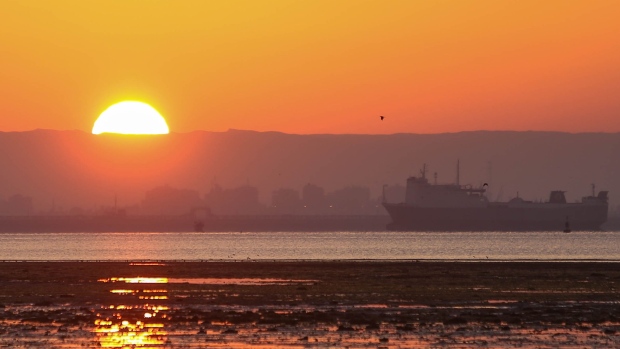Dec 17, 2023
Egypt’s Suez Canal Authority Says Monitoring Tensions in Red Sea
, Bloomberg News

(Bloomberg) -- Egypt’s Suez Canal Authority said it’s “closely following” tensions in the Red Sea and any impact on canal crossings, after Yemeni militant attacks on vessels hundreds of miles to the south prompted major shipping lines to temporarily avoid the region.
Since Nov. 19, 55 ships have diverted to use the Cape of Good Hope route between Europe and Asia rather than the canal, SCA Chairman Osama Rabie said Sunday in a statement. So far that’s a small proportion of the 2,128 vessels that crossed Egypt’s waterway in the same period, he said.
Attacks by Houthi militants on merchant ships off Yemen’s coast have spiraled in recent weeks, as the Iran-backed group, in response to the war in Gaza, said it would target vessels it claims are connected to Israel.
A.P. Moller-Maersk A/S and Hapag-Lloyd AG said Friday they were pausing voyages on the Red Sea, one of the world’s most important trade corridors.
MSC Mediterranean Shipping Co. SA and CMA CGM announced similar moves on Saturday, a day in which the US military said it shot down 14 drones in the Red Sea launched from Houthi-controlled areas of Yemen.
Read more: Shipping Giants Pause Red Sea Route as Houthi Attacks Intensify
Suez Canal transit fees are a major source of foreign currency for Egypt, which is battling its worst economic crisis in decades. Revenue from the waterway hit $9.4 billion in the 2022-2023 fiscal year, up from $7 billion the year before.
Read more: US Navy Shoots Down 14-Drone Wave as Shippers Avoid Red Sea
Diverting vessels around the tip of Africa will have ripple effects on the world shipping trade. Flexport Inc., a freight forwarding platform based in San Francisco, said in a blog post that taking the route around the Cape of Good Hope prolongs the journey by seven to 10 days compared with using the Suez Canal.
©2023 Bloomberg L.P.








